This post will be long. My story deserves a full space, and it will help you understand me. Feel free to listen to it above if that’s easier than reading it.
For those who desire to really understand me or who need to hear of another’s journey through pain to healing so they know they aren’t alone: please continue. Feel free to read part or all of it based on what you need to get out of it.
I started writing this post at the end of January (2023), and here I am at the end of March (2023) finally looking over the final pieces of editing before sending it to my friend to have him look over it. It’s a testament to the continuing rollercoaster of life. January and February of this year, I was miserable. I experienced a depression that was deeper than I had ever known. However, it helped me realize that depression has been a regular, albeit intermittent, experience in my life. At the beginning of February, I began taking an antidepressant, and I dug deep on processing my shame and pain. Today, I feel great hope and much more happiness. Just know that my life still has many difficulties and struggles, but I feel hope for greater blessings and joy in the future. [It took me another year to finally finish this up. Here we are in May 2024. But I did it!]
Our past is everything that we have. While it isn’t good to “live in” or over-analyze the past, it truly is the entirety of what has shaped us. True, we can define ourselves by our future: our goals and what we believe we can accomplish. But even our choice to focus on the future comes from the way we were shaped by our past. The past is a great learning tool and can offer a magnifying glass to what hidden inflictions may be hindering us from being the person we want to be.
I remember very little of the childhood I had before I struggled with sexual compulsions. When I was six years old, I discovered masturbation by accident. I had no idea what I was doing, but man it felt good! Yet.. at the same time, something felt wrong or inappropriate about it. To this day, I’m not sure why I sensed something dangerous and unholy in the action. No one had ever told me that I shouldn’t masturbate or even what masturbation was. Due to this feeling of “wrongness,” I decided that I had to hide it from my parents and my family. No one could know.
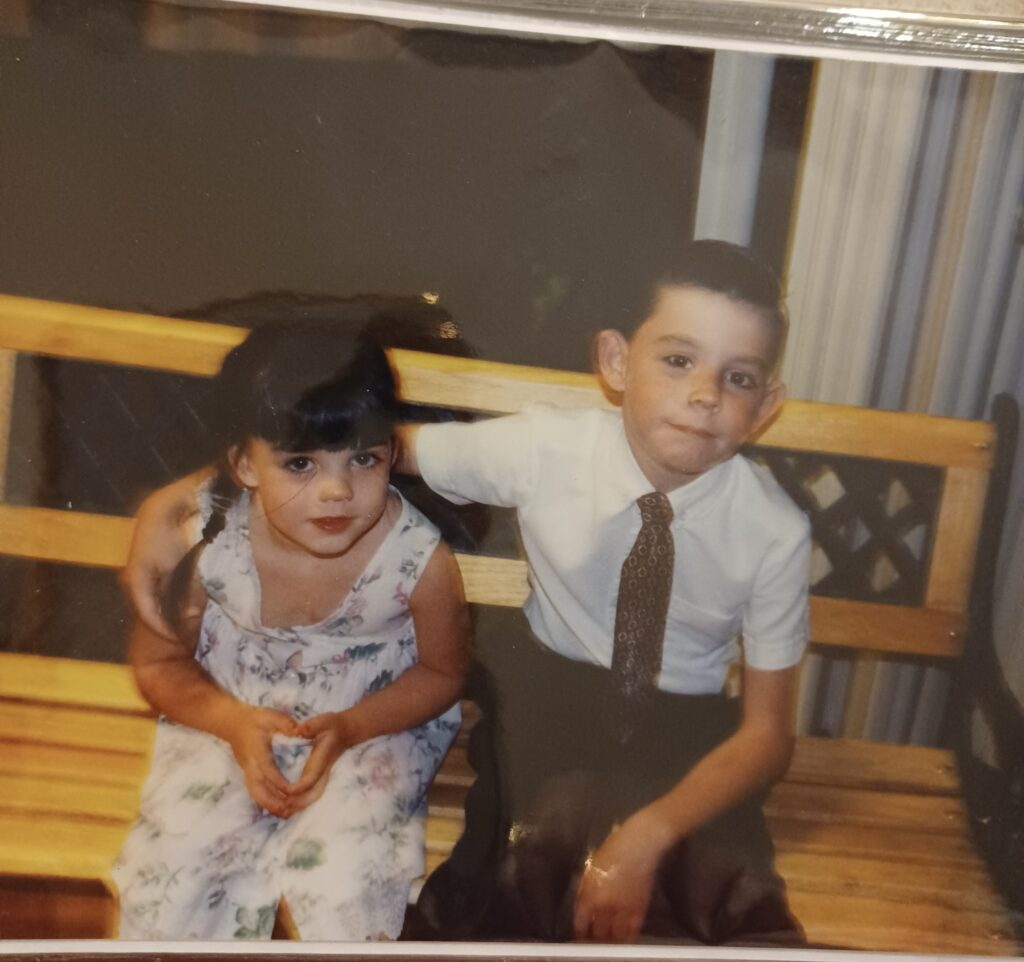
From the get-go, I made efforts to stop masturbating. At first, I could grit my teeth and go weeks or even months without self-pleasuring. Unfortunately, these periods of abstinence quickly got shorter and shorter. In the next few years following my masturbation discovery, I connected the dots around feelings of sexual stimulation and the feelings of masturbation. I noticed that having sexual thoughts about women made me feel similar to the way masturbation made me feel. This initiated my phase of using the family computer to start seeking out promiscuous images of women. It started slowly with innocent-looking searches, but soon enough, I was consistently looking at pictures of women in underwear and then running off somewhere to masturbate.
Around age 10 or 11, I finally allowed myself to view full-blown, nude pornography. This was the first time I saw a woman topless on the internet. Up to this point, I had only viewed pictures of women in underwear or lingerie. Occasionally, I would find myself watching a video where a woman would be preparing to take her top off, and I always stopped the video just before she did. Some of the willpower I exhibited in my childhood amazes me. One day, I didn’t stop the video. The instant I finished sexually stimulating myself with that video, I told myself I would never go back to porn. We would stick with pictures of women in underwear. But even my desperate attempts couldn’t last. For months, I still mostly viewed pictures of women in underwear. But slowly I turned more and more to full pornography until after a year or so, I was only using full-blown pornography in my acting out.
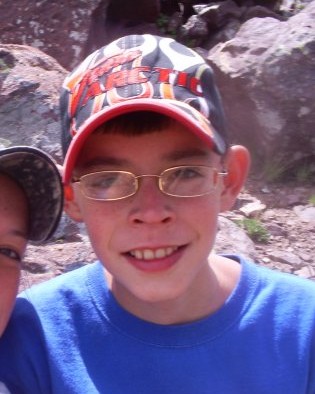
This was a scary situation for me. I had this behavior that clashed violently with my morals that couldn’t be stopped. I used every ounce of willpower that a 10-year-old has to offer, but it made no difference. This is when my life first felt out of control, and to be honest, it never has felt fully in control since then. Even when I made progress and my life seemed to be flowing nicely, freaking addiction would seemingly jump out and tear away everything important to me.
From this point of entering the world of true pornography, I rode a terrible rollercoaster that thrust me through intense highs and piercing lows. Over the next several years, I drew many firm and “uncrossable” lines in my mind. I can’t count the number of times I said to myself, “Okay, I’ve gone pretty far. But I will never go as far as *blank.*” Each time I was serious, and each time I crossed that new line. I went down the rabbit hole of pornography and discovered that the internet is filled with horrendous and shocking things. Over time, the things that once scared me because of their intensity became normal. I always needed more. It got to the point that the porn had to get more and more intense to have the effect that I used to be able to achieve easily.
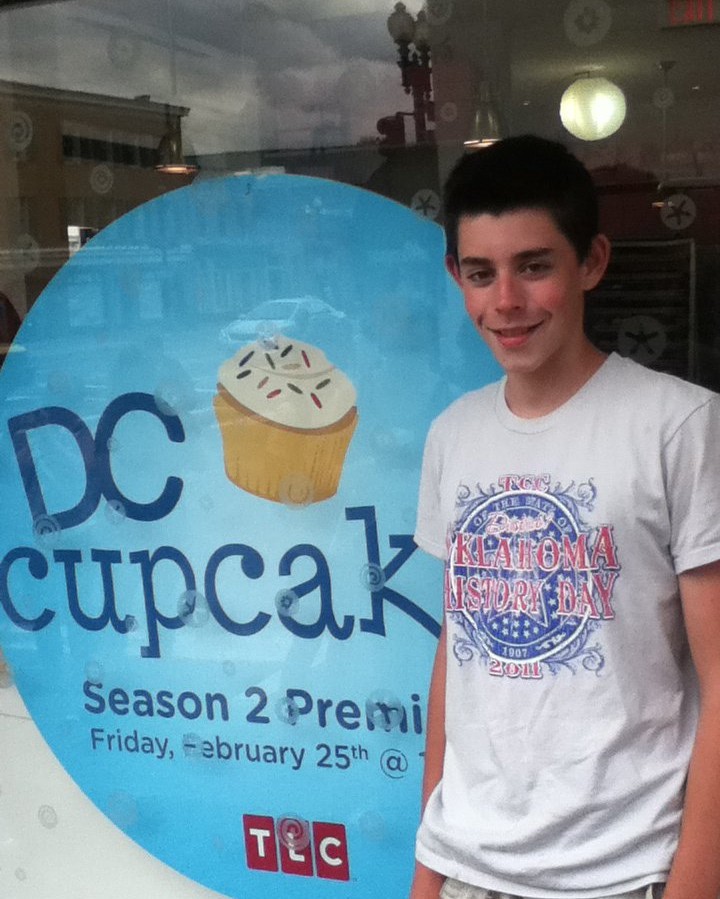
Each time I set a line and then crossed it, power and confidence drained out of me like water from a bathtub. My worth sank lower and lower. I remember being in middle school, and every day, I couldn’t look at the girls around me without seeing them through the lens of pornographic fantasy. I hated myself for it. As long as I can remember, I craved a deep connection with a woman I could love. I was convinced that marriage and romance held the healing balm to my soul pains. Yet, I was terrified of girls. I couldn’t bring myself to talk to them or make friends with them. In my eyes, girls were either pornographic fantasies or untouchable goddesses. Each girl whom I had a crush on became an infatuation for me, and I readily placed them on a high pedestal.
Over time, I told one or two friends about my sexual acting out. They admitted that they also struggled with looking at porn. Hearing that allowed me to feel slightly better about myself. I wasn’t entirely crazy. Now I could at least commiserate with someone about the intense frustration that arose from the inability to stop. We would talk grandiosely about all of the intricate and powerful ways we were going to get better and overcome our little issue. Additionally, it gave me someone to use as a soundboard for another one of my false promises about the next efforts I would use to finally stop acting out. By the time I was a teenager, I learned to hate New Year’s Resolutions because each year I would promise myself that I would stop looking at porn and then watch my resolution crumble soon after. I learned to stop trusting myself at all.
So in this hot mess of a rollercoaster, where did my sense of worth come from? I didn’t believe I had any worth as a person, so it became reliant upon my success at school. In my family, I was told that I’m “the smart one.” I performed well in elementary school and became forever tainted with the expectation of perfection. This expectation was first put on me from the outside. I didn’t have a natural inclination to expect perfection from myself; I was a child. But after several years of having this expectation placed on my shoulders, I adopted it. No other label or identity seemed to be thrown my way, so I adopted the smart label. I walked this thin tightrope where I spent one day feeling that I was better than everyone around me because I got the highest grade of the day then the next day I felt that everyone was better than me because my grades weren’t good enough. Having my worth given and then torn away so quickly and so often wore me down.
For a long time, I had no ability to comprehend just how much pain was torturing me because I always drowned it out. Who could blame me? When a 6-year-old boy, or a 10-year-old boy, is confronted with intensely difficult emotions, doesn’t it make sense that he would choose the painkiller to numb the pain? A boy of that age doesn’t have the capacity to understand how to cope with the difficult experiences and emotions of life. Not when his worth is constantly on the line and he feels that no one is in his corner. An iron wall developed around my heart that only allowed select emotions and thoughts to pass through. If anything got through that warned me of just how much pain there was, I did everything I could to get rid of it. It hurt too bad and was too terrifying. So I turned to my most reliable escape instead. Day after day, I fought and struggled just to finish small homework assignments, be present with my family, or get simple chores done because I spent hours viewing porn instead. Even menial tasks felt too large to accomplish.
So many times, I came home and became overwhelmed by the prospect of doing a simple homework assignment, so I chose to hide from it by turning to the excitement of pornography and masturbation. Following my relapse, I would feel numb and have no desire or motivation to do homework. After a while, I would realize I hadn’t done my homework and would get anxious again. Really anxious. Well, that was too overwhelming, and back to porn and masturbation I would go. This cruel cycle continued on and on and on.
It wasn’t until 9th grade that I began to realize how deeply this was affecting me. Even then, it was only an inkling of a realization. I saw how much I hated addiction, but I didn’t see the mountain of pain and sorrow underneath the addiction. Today, I understand that depression has been much more present in my life than I wanted to admit. And I didn’t even make this realization until the last month or two. However, 9th grade was the one period that I have always described as depression. I had become infatuated with a girl. It was the first girl who had given me consistent attention. She texted me daily, called me her best friend, and actually interacted with me in person. I fell into this deep infatuation that I thought was reminiscent of love. I thought these feelings were real. I even prayed to God and felt that I was destined to marry this person.
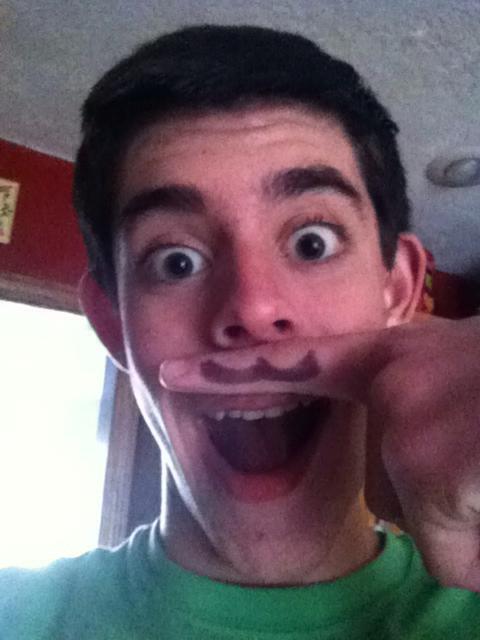
When I admitted my feelings to her over an awkward and drawn-out text conversation, she friendzoned me and I felt like my world shattered. My infatuation became worse, and this girl became the focus of my sexual fantasies. She functioned as my go-to thought for when I wanted to act. I hated it, I despised that fact. But I felt that I couldn’t continue on in any other way. It was the only thing that calmed the depression down enough to continue forward. I began distancing myself from my family, enough that they began asking why I wasn’t being more involved with them. I drowned out the world by spending hours blasting loud music in my ears. The world turned gray for a school year. A very long school year.
It turns out that a full year of depression has some lasting effects. Sophomore year of high school, I actually started talking to girls and made new friends. This was great and felt like something of a new start. However, I had these times when I went to a party, and I just shut down. I didn’t understand it, but my capacity to connect with others and enjoy myself just evaporated. Most of the time I went and sat in a corner and put in my earbuds and then felt torn between a deep desire for people to come over and ask if I was okay and a deep desire for people to leave me alone. Neither approach from others helped much. As high school went on, things got better. I found my crowd of people and started participating in things that I enjoyed. But the addiction never went away, and I couldn’t seem to make any progress with it either.
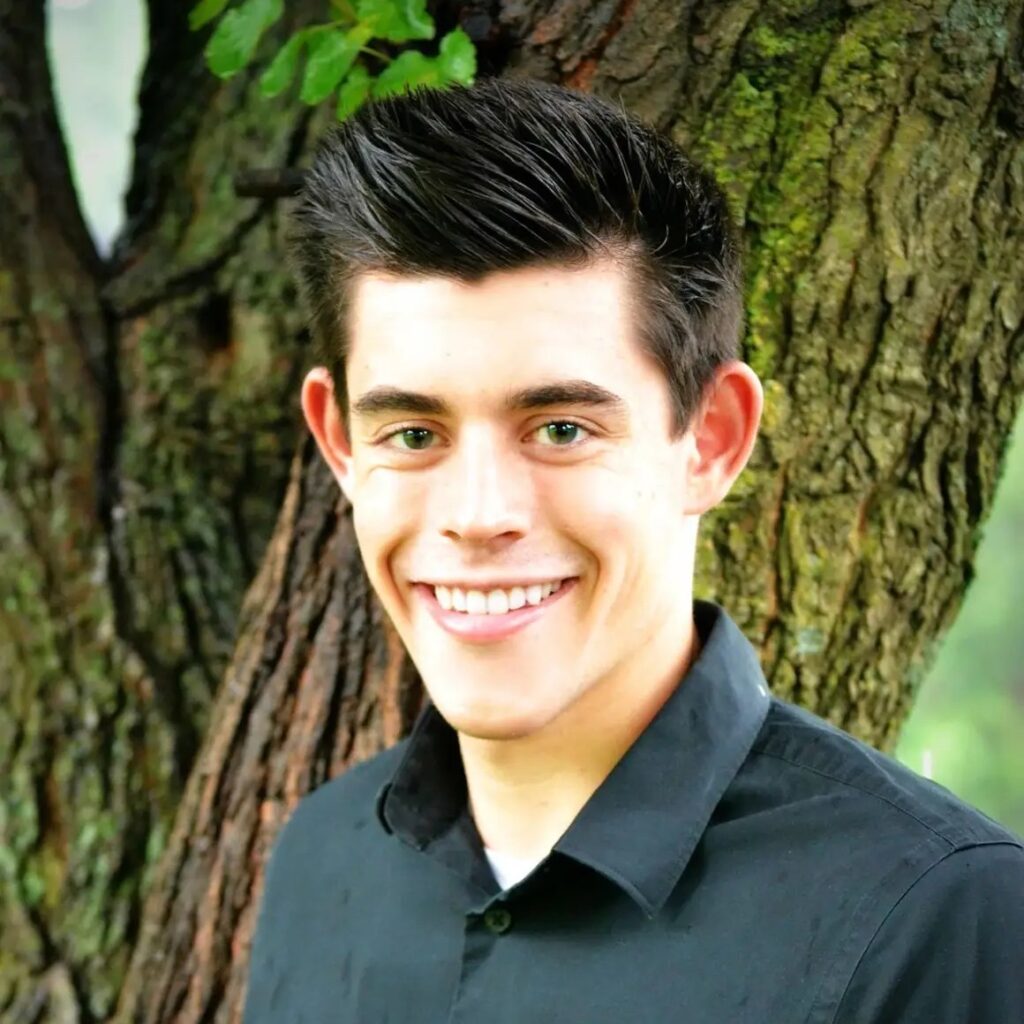
Throughout my teenage years, I sought out various forms of help. When I was about 14, I went to my LDS bishop. This is a church leader who heads the congregation in the area he lives. The bishop is charged with the spiritual care of those who attend his unit. Part of this responsibility is to help people overcome and repent from serious sins. My bishop was very kind and compassionate. With tears in his eyes, he told me that the Lord cared deeply about me and that he knew the Lord could help me overcome this. I thought this step would be the first in a short journey.
That may have been the first step in healing, but the journey was so much longer than I realized. My bishop encouraged me to tell my parents about my struggle with pornography, but I refused. My house was one filled with a lot of yelling and people getting upset. I think deep inside I was scared of getting shouted at and told that I have to stop or else… One day, my older brother caught me masturbating and he reported it to my parents. My mom was compassionate and talked openly with me. My dad didn’t have much to say. The first, and pretty much only time, he said anything to me about it as a teenager was as we sat in the foyer of a crowded restaurant waiting to be seated. He came and sat close to me and said quietly, in a low voice so no one around would hear, “You need to figure out this little problem and stop it.”
Those words were wounding. It made me question everything I had done to try and get better. I had spent most of my conscious life putting every effort that I had into stopping. I had devoted every ounce of willpower I had to stop using pornography, yet it felt like someone that was supposed to guide me told me that I had never even tried. After that, I decided to refrain from speaking to my dad about those struggles.
I went through several bishops who all expressed great love and desire to help me. They all suggested similar tactics to fight the beast within me. They suggested abstaining from the sacrament (a weekly practice in my church) for a week any time I viewed pornography. They suggested that each time I was tempted, I pray more fervently, read my scriptures, or sing a hymn to myself. These tactics never worked. These bishops also told me that if I covenanted (promised) with God to give my all, then He would do the rest and heal me. That also never happened. This really brought my relationship with God into question.
I belong to the Church of Jesus Christ of Latter-Day Saints. My church and belief system have a heavy focus on the idea of worthiness: a level of moral upstanding that one has before God. Basically, worthiness is the question – Am I living virtuously enough to have God’s presence and blessings in my life? A big no-no against this worthiness is sexual transgression (sin), so I eventually decided that I had never truly been worthy of God’s bigger blessings in my life. My use of pornography always made me unworthy.
I didn’t want to be unworthy for the rest of my life. I wanted to feel like I was a good person who deserved good things. So I fought like a madman against my addiction. Some asked me to consider that maybe it wasn’t an addiction I was fighting, to consider that maybe it was just a bad habit. If anyone could have been a fly on the wall of my life, they would’ve seen how this burden tore apart my life. Between the ages of 12 and 23, I tried everything I could think of. I tried putting filters on my phone and computer, putting bedtimes on my digital devices, telling someone every time I relapsed, accountability software, 12-step meetings, working the 12 steps, therapy, mentors and sponsors, getting a “dumb phone,” turning off my phone at night, calling someone whenever I felt a temptation, daily family history activities, scripture study, prayer (prayer prayer prayer prayer prayer prayer), going to bed earlier, and sheer willpower. Nothing… Worked…
It didn’t matter how honest I was. It didn’t matter how hard I tried. It didn’t matter how spiritual and connected to God I was (or even felt). It didn’t matter if I was willing to give my entire life and soul… The addiction never relented, and it was hell. For small seasons, I would obtain sobriety and I would be fooled into thinking it meant I had succeeded. But then I would crash with the force of a failed fighter jet whose victorious flight had been cut short. In my heart, I don’t think I ever really believed I could stop…even if my brain thought we had made it.
I once had someone look me in the eye and ask me if I was willing to give up everything to change. He was assigned to be a mentor to me, and he loved me. He truly wanted to help, but that was his question. I want you to think about that. I was 22 years old. I had spent the last decade giving everything I had, more than I had given to anything else in my entire life, to this effort to overcome this hellish addiction, and this person’s question relied on the assumption that I hadn’t already given everything.
Shame. Shame was killing me.
Please. If you know someone who is struggling with an addiction. Get to know their story before assuming that they haven’t already tried giving their very heart and soul to God in an effort to find relief and healing. I had given everything, and addiction had taken everything.
Somewhere, in the back of my mind, I always figured that by the time I had graduated high school, this ‘little’ addiction problem would be solved (you see, I didn’t realize just how much it was wounding me until after high school). Well, I finished my journey through grade school and porn was still freaking hanging over my shoulder. I wanted to serve a mission, and I watched all my other friends head off on their missions or off to school. I was left at home, in a never-ending slugfest with my demons. I tried attending the LDS faith’s version of the 12-step called the Addiction Recovery Program, but it didn’t do much for me. Finally, I accepted the offer of my stake president (another leader in my church) to meet with a therapist.
This therapist helped me see that I wasn’t crazy. There was a reason that I was experiencing my addiction and struggles in this way! During therapy sessions, I felt calm and more at peace. I always walked away from the meeting with more hope. It was huge to meet someone who understood what I was going through and who had help to offer. Through many meetings with him and my stake president, I began making some progress. My compulsive pornography and masturbation use slowed down, and I started doing everything I could to increase my righteousness and come closer to God. I literally felt some of the darkness drain out of me, and it was replaced with light. I began feeling truly happy, happier than I had ever been. As I continued working at it, I was able to gain a few months of sobriety, and I finally felt ready to serve a mission.
I was fired up and beaming as I went forth to serve a mission, and I stayed that way for four months. Everyone had told me how difficult the beginning of a mission is, but that wasn’t my experience. Sure it was hard and scary and new, but I felt like I was exactly where I was meant to be. I didn’t find myself very stressed, and I felt like I was flowing. Until my third transfer… A transfer is just a six-week chunk that LDS missions are divided into. At the end of my second transfer, temptations to masturbate began growing until they were unbearable. I remember a few nights when the temptation to sexually fantasize and masturbate grew so strong that I literally wanted to tear my skin off. After weeks of this growing pain, I gave in. The technology that missionaries use has strict filters on it to block anything that isn’t specifically church or missionary oriented. However, I had spent my life figuring out how to get around such obstacles, and I was able to find porn. I did so, and I masturbated.
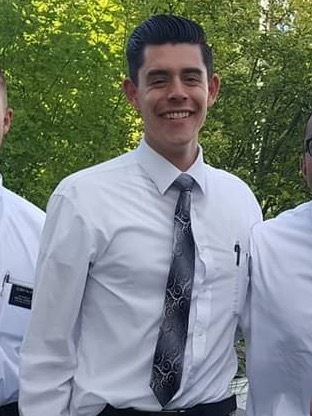
I was devastated. I was here serving the Lord, and I had promised to uphold the highest standards so I would be righteous as I did so. I couldn’t just let this problem start up again and ruin my mission, so I owned up to my mistake immediately. I told my companion and asked him to give me a blessing (a special prayer that gives people strength and healing). I told my mission president, and I even asked him if I could meet with a therapist again. So here I was, back to meeting with a therapist and feeling like an out-of-control mess. Dangit. The rest of my mission was very polarized. For half of it, I was gliding atop cloud nine. Those were the best and happiest times of my life. For the other half…I felt that I was treading through the swamps of despair. I felt so conscious of my sins and my “unworthiness” to be a missionary. During those times, it took all I had to keep working as hard as I could and smiling. But inside, I was walking with the heavy chains of depression slowing me down. The skies felt gray and my heart felt heavy.
The end of my mission was one of the times that the skies didn’t seem so gray. This allowed me to become extremely excited to return home from my mission. I had worked as hard as I could and felt a lot of emotional weight. It seemed to me that I was leaving all of that behind. I could honestly say that I had given everything I had. This excitement fooled me into thinking that my sexual addiction was done, and the gray skies were far behind me. After only a few weeks I relapsed… I was still motivated by my excitement to start the next chapter of my life, and I wasted no time in going to my bishop and seeking his help. He was the one who introduced me to SAL.
SAL – Sexaholics Anonymous Lifeline (I find it a shame that Word doesn’t recognize sexaholic as a real word). A group based on the principles of Alcoholics Anonymous and closely related to Sexaholics Anonymous. I will forever be grateful that my bishop introduced me to this group. I spent the summer after my mission in my hometown in Oklahoma, and this is where I began attending SAL. When the fall came, I went to Utah to attend BYU. I found a SAL group in Utah and continued attending for a couple of years. I found that 12-step wasn’t the final solution for me and my recovery, but it was a crucial step.
In the world of SAL and 12-step, I found some things I’d never had before. Within these groups were men whose lives had been torn apart by sex addiction, and some of those lives had been messed up a lot worse than mine. I found men who had been sober from addiction for years. Better yet, I found men who were happy and enjoying life on the other side of addiction. I found a community where addiction was openly and deeply discussed and where people were honest about how horrible and painful it was. But even with all that, I wasn’t finding the freedom I was seeking. Even as I started working through the 12 steps, addiction was still having its way with me.
Working through the 12 steps was a slow process for me. For the first year, I didn’t really make any progress through step work. When I did buckle down, I worked my way to step four. I found myself struggling because people were telling me that as I worked the steps more and more I would start gaining longer periods of sobriety, but it wasn’t happening. However, I still appreciated the brotherhood of the group. I noticed that some men talked a lot about meeting with their sex addiction therapist. After a year of going to meetings, I took a deep breath and decided to get a therapist.
Reaching out to get a therapist was a big deal for me, and I was scared. Twice in my life, I had seen therapists. Both times they had been through LDS Family Services, had been aimed at helping me function as a missionary, and had been paid for by a church organization. This time, I decided to try a specialist. This meant I would likely have to foot the bill myself. In SAL, I kept hearing talk of an organization called Lifestar. I picked up my phone and called Lifestar, and they set me up with Steve Shields.
One of these days, I will probably write a blog post solely dedicated to my experience with Steve. Steve has changed my life. He was the first person in my life to introduce a real hope for change and recovery. He changed the way I saw myself and addiction. He gave me hope for a life of freedom that even a 12-step group couldn’t offer. I credit God with the healing that’s taken place inside me, but I credit Steve with being my catalyst and teacher. He introduced a whole new world to me.
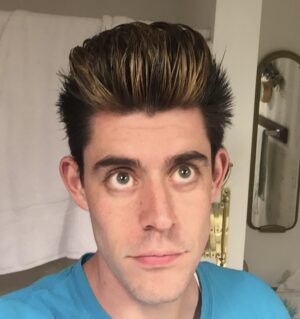
Steve had a very real confidence in my ability to find healing and recovery. He also had the story to back it up. Steve had been to hell and back himself due to sexual addiction, and along the way, had been blessed to discover a path of freedom. He decided to share his story and knowledge of healing with the world. Even with Steve’s help, it took me time to start changing. I started meeting with Steve in the summer of 2020, and soon after, I had my “rock bottom” experience. I continued meeting with Steve in one-on-one therapy and started slowly healing my wounds until 2022 when Steve convinced me to try group therapy.
I wasn’t entirely sure what to expect from group therapy. I walked into a room of young men, and I was the oldest one there. For some of them, it was their first exposure to therapy. Others had met with Steve or his partner James before attending the group. Group therapy was different than individual therapy; we focused on a method of therapy referred to as “experiential” therapy. Using methods that allowed us to face and interact with our past traumatic experiences, we processed the inner pain which had always refused to let go. The 10 months I spent in group are the most effective time I’ve ever had in therapy or recovery. The things that we dug up hurt, and they scared me. But I began facing them head-on and accepted that my deep emotional wounds truly had shaped my life. It was time to face them and work through them.
For a moment, I want to pause and acknowledge the absolute miracle of how my life was lined up to lead me to a haven of real healing… If I hadn’t talked to my bishop when I was 14, I wouldn’t have had the courage to seek out help before serving a mission years later. If I hadn’t sought out help before my mission, I wouldn’t have been introduced to the Addiction Recovery Program and my first therapist.
If I hadn’t been introduced to the world of therapy, I wouldn’t have dared to ask my mission president if I could meet with a therapist on my mission. If I hadn’t tried attending the Addiction Recovery Program before my mission, I wouldn’t have been willing to try SAL so readily when I got back home. If I hadn’t started attending SAL, I wouldn’t have heard about Lifestar. Additionally, if I hadn’t had previous experiences with therapy, I wouldn’t have been willing to try Lifestar. If I hadn’t gone to Lifestar, I wouldn’t have met Steve. And finally, if I hadn’t met Steve, I wouldn’t have found real recovery.
A lot of this has to do with those SAL meetings, and what blows my mind is that for a long time, the only places where SAL meetings were held were in Utah with two exceptions. One exception was a meeting in Alaska and the other was in my hometown of Broken Arrow, Oklahoma. What are the odds that I lived in the one place inside the contiguous United States, outside of Utah, that hosted these meetings??? Not only that, my church leader was aware of the meeting, he introduced it to me, and the meetings were actually held in my church building. Some people may call that coincidence, I call it God.
Life since meeting Steve has still been very difficult. But the pain finally has purpose. When someone goes through a traumatic incident that takes away their ability to function physically, it takes a lot of work to do physical rehabilitation. They can choose to remain physically enfeebled, or they can choose to get help and retrain their body to move. Steve introduced me to a world of emotional rehabilitation. It hurts, but we are addressing wounds instead of just taking painkillers. Soon, I will be able to function with a strong spirit and emotional self
When I upgraded from my one-on-one meetings with Steve to group therapy, I learned about real trauma work. We utilized a practice called psycho drama to address the emotional wounds that had caused us to rely on addiction. My eyes were opened to the major wounds I had in my past, and I began walking through those wounds. Last September I went to a large workshop in Hawaii to do trauma healing. This helped me see even more of the wounds.
While much of the work to uncover my wounds and start looking at them has been done, my healing isn’t over. My wounds still affect me in the ways that I think and see myself daily, but now I see what’s holding me back. I haven’t used pornography and masturbation since September of 2022. I relapsed just one time after my Hawaii workshop, and I no longer consider myself struggling with an addiction. Even if I relapsed today, I know that I’m no longer addicted to pornography and masturbation. For years, I worried that I would never be able to say that.
***(I wrote the previous paragraph a couple of months ago, today is March 29. I started deleting the second half of the paragraph because I have now had a few relapses over the last month. But then I changed my mind after reading the sentence starting with “Even if I relapsed today.” When I saw the conviction I had in the moment I wrote that, I decided to keep the paragraph as is because it is still my truth.)***
*****((I procrastinated finishing this post for a long time. Today is May 3, 2024. Over a year has passed since I put most of this post together. But I’m not giving up on my dream of putting my voice out there to help others on their path.))*****
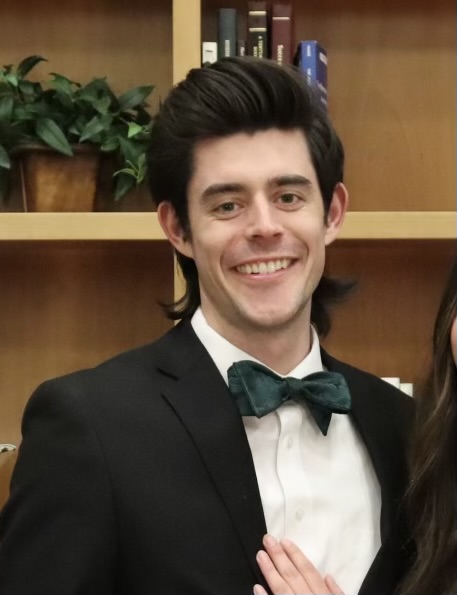
My past is rich, colorful, and painful. I wouldn’t change any of it now, although, at the moment they happened, there were many events I wish I could’ve undone. The story that I’ve drawn here provided the backdrop of the canvas that I now know God is filling with a beautiful painting more beautiful than anything I could imagine or create on my own. Hurt and pain still walk with me, but I see light at the end of the tunnel. I understand that I’m not the only one with a painful story, but there is a way to find healing when all seems lost. God is calling to me, maybe he’s calling to you too.

I would be interested in your insight to help a parent that has a child struggling with addiction.
You story breaks my heart. But also makes me very proud of your tenacity and courage to keep trying and your desire to help people.
Being a parent to a child struggling with an addiction is difficult. You want to so so badly but don’t know how. My first suggestion would be to try and develop deep empathy. Addicts notoriously do not love themselves and feel that they can’t do anything right. Instead of jumping to giving them answers, let them know they are loved regardless of their behavior and that you have full confidence in their ability to change with the right help and with time.
Thank you…I really connected with the part of thinking that a person hasn’t really given it their all and wouldn’t give anything to be free. We don’t know how hard it is for others. We don’t know how much they are trying. We dont know how much is their all, their 100%. Only 2 people know…Jesus Christ and my basketball coach during conditioning sprints after practice… 😉
But seriously, its unfortunate, that we naturally measure others’ efforts on our own scale or by the results we can observe.